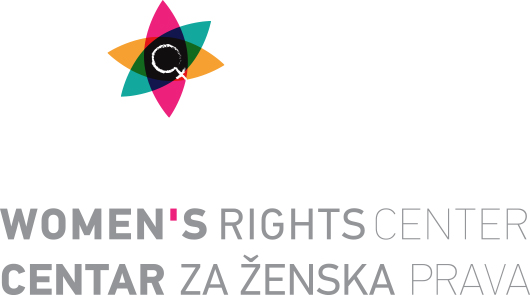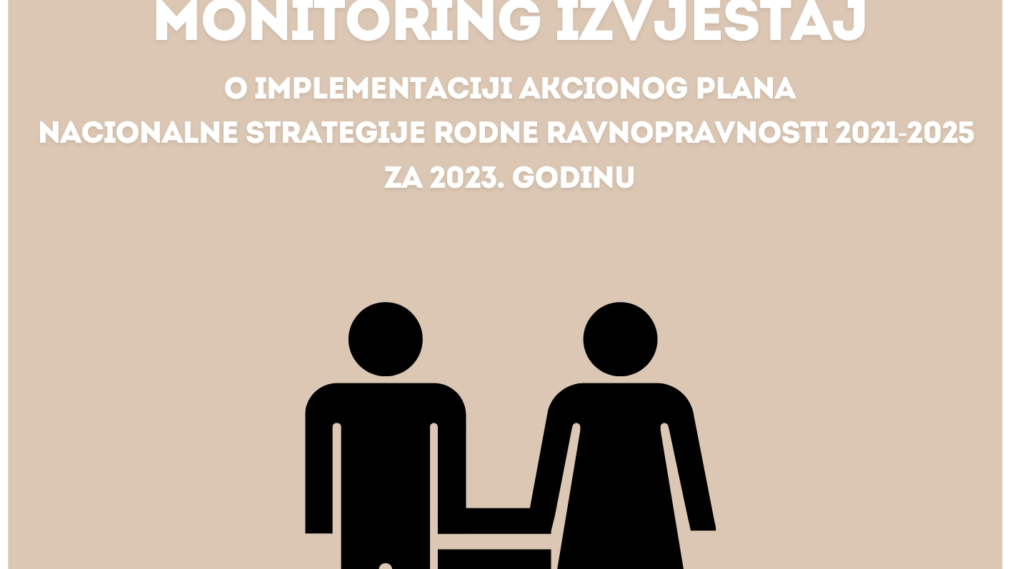840Views 0Comments

Proposal for amendment of the Rule of Procedure of the Parliament of Montenegro
“Women’s Rights Center” sent a proposal to the Collegium of the President of the Parliament of Montenegro, the Working Group for Drafting Proposals for Amendments to The Rules of Procedure of the Parliament of Montenegro for amendment of the Rule of Procedure of the Parliament of Montenegro
In order to ensure greater parliamentary representation of Montenegrin women,
The Law on Gender Equality introduces the obligation of the Parliament of Montenegro to apply the principles of gender equality within its competences, ” especially the principle of gender balanced representation in the election and appointment to certain positions, education of working bodies and determining the composition of official delegations ” (Art. 10, par. 1).
With the recent appointment of a female representative to one of the three vice-presidential positions (33.33%), the new , 27th Assembly of the Parliament, made a significant step forward towards achieving a greater gender balance in the highest Assembly positions. WRC greets this decision wholeheartedly.
However, the practice so far shows that we are still far from equal representation of women and men in the Assembly.
After the 2020 elections, 18 women (22.22%) entered the new Assembly, after including another woman through the procedure of filling one of the vacant mandates – that number increased to 19 female representatives (23.45%).
This is the first parliamentary assembly of Montenegro since 2006 that included less female representatives than the preceding one. Since the introduction of quotas in 2011, more than 23.45% of women has never been elected in the Parliament of Montenegro n the parliamentary elections. This means that, although women make up more than half of the population, the number of women elected to the Parliament has never reached a quarter of the total number of mandates.
This inequality is further reproduced through the gender composition of the parliamentary institutional infrastructure, of the Parliament bodies and delegations, as well as in its management structure.
When it comes to parliamentary working bodies, the overall representation of women is better than in the plenum. Subsequent to recent appointments, women make up 31.36% (or 52 of 169) of the members of the 27th convocation.
However, the unequal gender structure of the plenum was precisely transferred to the gender structure of the newly appointed committee chairs, where women make up 23% (3 out of 13 representatives). Also, regardless of the total representation of 31.36%, of women in working bodies, in some committees we still meet the unacceptably pronounced unequal representation of women and men. In some certain boards, the percentage of women is even lower than the already unacceptably low percentage (23%) of women in the plenum. Anti-corruption committee has only 7.69% of women (1 out of 13), Committee for Human Rights and International Relations – 15:38% (2 out of 13), while the Security and Defense Committee did not include a single woman . The Committee for Gender Equality, where men and women are also unequally represented, in this case in favor of women, includes the greatest number of female representatives 69.23% (9 of of13) members.
Regarding other parliamentary working bodies, the Commission for Monitoring the Privatization Process has a total of 21.42 % women ( 3 out of 14 ), and the Working Group for Drafting Proposals for Amendments to the Rules of Procedure of the Assembly 22.22% ( 2 out of 9 ). Both of these working bodies are also headed by men, which reduces the total percentage of women at the head of parliamentary working bodies to 20% (3 out of a total of 15 working bodies of the Assembly).
Awaiting the amendment the Rules of Procedure, this letter aims at pointing out to the above-mentioned legal obligation of the Assembly to apply the principle of equal representation in the selection and appointment to certain positions, as well as in the education of all working bodies and in determining the composition of the official delegations.
In order to prevent circumvention of these legal obligations that would result in unacceptably low number of women in some committees, or even their total absence, we believe that it is necessary to define with greater precision the means to achieve this legal obligation:
- In order to promote and achieve gender equality in Montenegro, which is stipulated by the Law on Gender Equality , we propose changes and amendments in the Rules of Procedure of the Assembly that would prescribe the minimal level of inclusion of the less represented gender, both in relation to the composition of parliamentary bodies and delegations and in the selection and appointment of the Vice President of the Assembly and the presidents of parliamentary bodies.
Also, in order to achieve gender equality, In accordance with the provisions of the Law on Gender Equality prescribing the duty of assessing and evaluating the impact of decisions and actions in their jurisdiction on the position of women and men (Article 3, paragraph 1), we believe that it is necessary that the Rule of Procedure recognizes the obligation of the Parliament to work on improving the equal consideration and finding an adequate response to the diversity of problems and needs of women and men, both through its legislative activities, and trough exercising their monitoring functions. In this regard:
- We suggest that the Rule of Procedure of the Assembly recognizes the need to integrate a gender perspective in the exercise of its constitutional powers, in accordance with the obligations stated by the Law on Gender Equality.
Finally, with this letter we want to draw attention to the limiting nature of the conditions for the involvement of civil society organizations in the work of parliamentary bodies. According to the current content of the Rule of Procedure, civil society organizations and experts may participate in the work of parliamentary bodies only by invitation (Article 67). Even in the situation of absolute readiness of the president of the committee to involve civil society organizations in their work, we regard the existing solution inadequate. The new solution should discard the criteria for inclusion of civil society organizations in the consultation process based on committee president’s assessment of the importance of their inclusion in the work in relation to their primary area of activity.
Bearing in mind that this condition is especially limiting for all organizations involved in horizontal issues, such as gender equality, and that its strict application would limit the participation of gender equality and human rights organizations and professionals to the Committee for gender equality, in the final sentences of this letter:
- We propose that Article 67 of the Rule of Procedure of the Parliament is amended adequately to remove formal obstacles for participation of civil society organizations, as well as other relevant stakeholders in the work of parliamentary working bodies. In this regard, special attention should be devoted to allowing the NGOs and professionals dealing with gender equality the possibility to draw attention to the horizontal character and intersectional nature of the phenomenon of gender inequality.
WRC believes that this initiative will be taken into thorough consideration and stands at disposal to the Parliament bodies for assistance in formulation of proposals of the working group to amend the Rule of Procedure.

